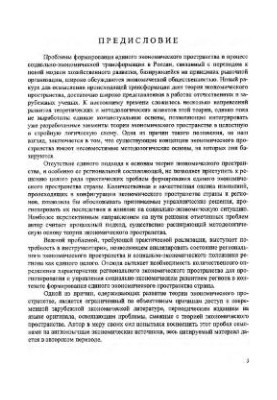Theory of Economic Space: Methodological and Regional Aspects
 Instant download
Instant download
after payment (24/7)
 Wide range of formats
Wide range of formats
(for all gadgets)
 Full book
Full book
(including for Apple and Android)
The book “The Theory of Economic Space: Methodological and Regional Aspects”, written by a team of authors, is a unique study that immerses the reader in the complex and multifaceted world of economic theory. This work will not only be a useful guide for undergraduate and graduate students studying economics and regional development, but also an interesting reader for all who seek to understand how economic processes affect space and territory. The book focuses on the concept of economic space, which is seen as a dynamic and changing phenomenon. The authors analyze how various factors from social and cultural to political and environmental shape economic reality in different regions. The reader will be able to learn about how economic relations affect the formation of territorial structures and how these structures, in turn, affect economic development. The book will be especially interesting for those who are fond of economic geography, regional economics and sociology. Students, faculty, and researchers will find here many useful ideas and concepts that can be applied in their practice. In addition, for practitioners in the field of economics and management, the book will become a valuable source of information on modern methods of analyzing and evaluating economic processes at the regional level. One of the key topics raised in the book is the interaction between economics and space. The authors explore how geographical factors influence economic development and how economic processes can change the landscape. This interaction becomes especially relevant in the context of globalization, when local economies face international challenges and opportunities. Readers will be able to see how different regions are adapting to these changes, and what strategies they are applying to achieve sustainable development. The style of the authors is distinguished by scientific rigor and depth of analysis, which makes the book not only informative, but also fascinating. Each section is imbued with real-life examples that illustrate theoretical concepts and make them more easily understood. The authors use a variety of research methods, including quantitative and qualitative approaches, which allows them to better understand complex economic processes. The book "The Theory of Economic Space" may be of interest to readers who are also looking for literature on topics such as "Regional Economics", "Economic Geography", "Globalization and Localization" and "Sustainable Development" . It will be an excellent addition to the library of anyone who seeks to expand their knowledge in the field of economics and understand how economic processes affect the lives of people and the development of regions. In conclusion, “Economic Space Theory: Methodological and Regional Aspects” is not just a textbook, but a real find for anyone who wants to understand more deeply how economics shapes the space around us. This book inspires reflection on the future of regions and their role in the global economy, making it an indispensable tool for anyone interested in the economic sciences and their practical aspects.
LF/730220460/R
Data sheet
- Name of the Author
- Collective of authors
- Language
- Russian















